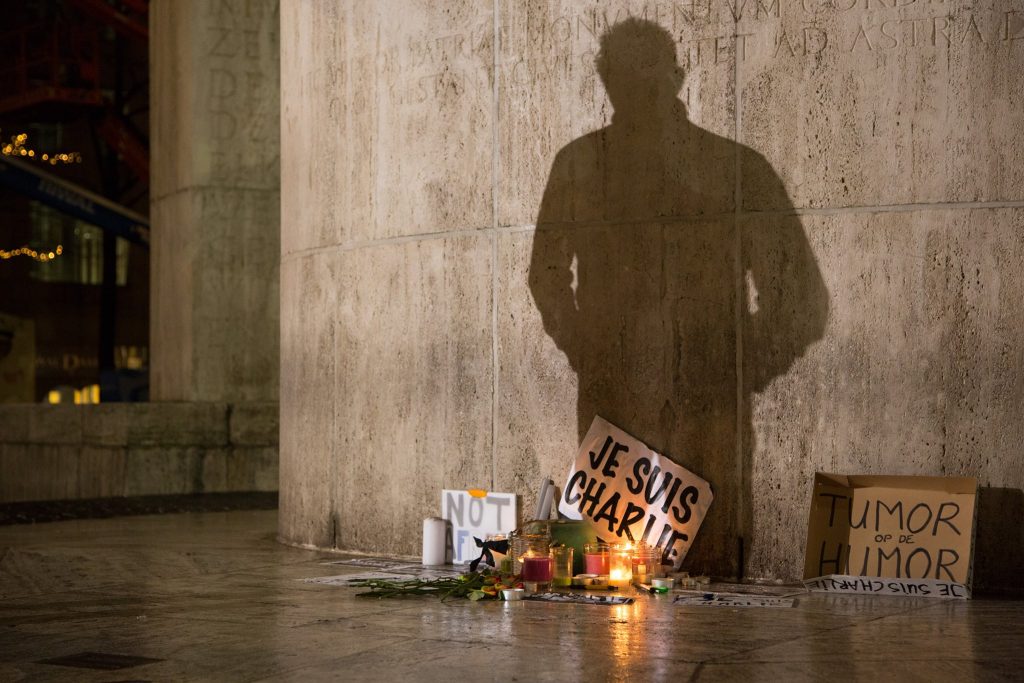
New York. Norway. Kenya. Paris. Nice. Berlin. London. Stockholm. Egypt. Manchester. These are cities and countries, where fatal events have taken place, with hate as fuel. Despite these tragic events, the bigger question remains unanswered. Why is our perception of terrorism so narrow, and why do we never seem to learn? And what does it take to turn a man into a fundamentalist who loses himself to an extent where terrorism is the solution?
Here is a clue. Someone’s home country becomes a playground for great powers. Bombs fall from the sky more frequently than rain. People die, flee and suffer. There’s no end in sight. Some people decide to change the unbearable conditions on their own initiative by joining a “rebel group”. The problematic categorization of rebel groups by great powers remains the elephant in the room. ISIS as well as the People’s Protection Units fall under the same label, which is quite contradictory, since they’re fighting against each other. Thus resulting in a vicious circle where harm is done in excess. This might be the current situation, because many of the responsible countries have one strict definition of “rebel groups”, that might work in theory, but fails when put into action and ends up extending the conflict. Most agents in armed conflicts are well aware of their mistakes, yet they let their stubbornness get the best of them. As long as the desired outcomes of capital, global influence and patriotism can be achieved – countries will attempt to justify profit made from people’s misery.
Not only have radical movements arisen from mental vulnerability and paradox definitions, but also from tactics such as: “the enemy of my enemy is my friend”. This proverb was what caused the CIA to initiate “Operation Cyclone” in the 1970’s – where they would send down US officials to pay, arm and train Afghan talibans to combat Soviet troops. It was rather inconsequential and resulted in strengthening organizations such as Al-Qaeda and other militant groups that terrorize the world today.
The rise of radical movements as a response to ongoing conflicts should be expected. The problem is that most of its members consist of people who have lost all hope. People that are so devastated that they see no other way out, but to turn towards extremism. Mentally vulnerable individuals have been tricked into thinking that extremist communities are welcoming, but instead they’ve become victims of radicalization and mental exploitation. These scenarios should be anticipated, due to the challenging conditions that war-torn populations experience. Unfortunately, many stakeholders fail to acknowledge the complexity behind fundamentalist movements and instead dismiss them as malevolent. Radical movements are not the ones to blame, but in fact the mismanaged conflicts and power plays from which they arise.
Meanwhile, another affected civilian decides to flee towards Europe. It’s a long journey that consists of hunger and risking the life of him and his family. The civilian thinks that he has reached peace and warmth when he settles down, if he’s alive when he does. But instead he’s greeted with cold looks, ignorance, hatred and social exclusion. He didn’t choose this life, and people seem to hate him because of his geographic origins. The surrounding community also blames his religion. Religions are primarily books. But books do not bomb, shoot or kill. Human actions based upon their interpretation of books are what’s relevant here. We should also be aware of the fact that most radical members of many extremist groups aren’t natives in war-torn countries, but people that have joined from the outside.
Media reporting on events in Europe doesn’t make terrorism any less of a global issue, because with each terror attack, comes another wave of chaos. The phenomenon of terrorism is truly devastating and inhumane. But is our treatment of refugees humane? Are our battles on their home grounds humane? Is it humane to destroy their homes, and should they thank us for it? These actions aren’t coincidences. Similar events have occurred before. In the shape of civil wars, prosecutions, genocides and tortures. Terrorists are often the outcome of these events, and aren’t necessarily bearded men with broken minds and medieval values. A terrorist can be a Swede, an American or a president. A terrorist can operate under any flag or in any apparel. It is time to broaden our definition of terrorism. After all, the most tragic battle isn’t the fight between black and white or good and evil. It is the fight against the seemingly invisible.

